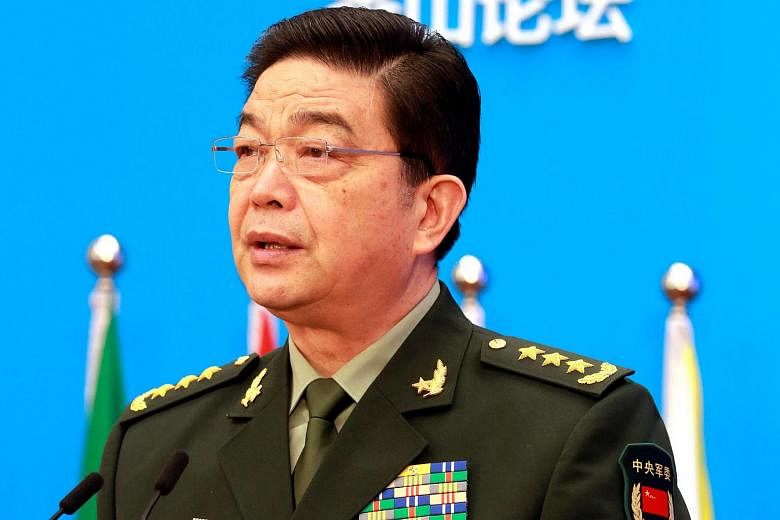The United States can and should do a better job at signalling various ways where China can play a constructive role in Asia, said US President Barack Obama's former top Asia adviser.
Dr Evan Medeiros, who was senior director for Asian affairs at the National Security Council (NSC), urged the next US president to develop links with Chinese-led initiatives such as the Asian Infrastructure Investment Bank and the "One Belt, One Road" plan to improve China's connection with its neighbours.
"Signal to China that when we say we're comfortable with China's rise as long as it is not inconsistent with international rules and norms, we are backing it with actions," he added yesterday at the Xiangshan Forum, billed as China's version of the Shangri-La Dialogue.
Dr Medeiros added that China also needs to reciprocate, such as showing that it is not going to use force in the territorial disputes with neighbours in the East and South China seas, or over Taiwan.
"If there's a major Chinese use of force, it could run the risk of taking the relationship in a very negative direction as it could involve a US military response," said Dr Medeiros, who served six years on the NSC till June last year and is now Asia head for consultancy Eurasia Group.
He was responding to a question on the notion of power-sharing between the US and China during a session on major-power relations, which he said was a good idea, given the strategic mistrust in the Sino-US relationship that has led both sides to adopt a mutual hedging strategy.
Reflecting the mistrust, Dr Medeiros yesterday faced criticisms from Chinese delegates that the US has been trying to contain China's rise through its Asia rebalance strategy.
Dr Medeiros, who is described as the "key architect" of the strategy, said the rebalance comprises economic and diplomatic components while the military component, such as updating defence cooperation pacts with its allies, is aimed more at tackling new security threats.
"It's not because the US seeks to contain China. I was never in a single meeting at the White House where somebody put forward the idea of containing China. It is neither desirable nor feasible," he added.
But China's Academy of Military Science senior fellow Chen Xuewei said comments by senior US military officials seem to suggest otherwise, as he called for a stop to such rhetoric. "To resolve the South China Sea disputes, it is not what they do but what they do not do. Don't do the wrong thing," added Dr Chen.
Chinese analysts, in a separate session on maritime crisis management, warned that China would view it as a serious provocation if Japan were to join US patrols in the disputed waterway.
Said Nanjing University's South China Sea expert Zhu Feng: "I don't know how China would respond but I really hope Japanese friends would reconsider doing that rather than stick their noses too far across the line."
An unnamed Japanese defence ministry official later told the audience that Japan does not have plans to conduct routine patrols in the South China Sea. He added Tokyo does not take a position on sovereignty issues but cares about how the territorial disputes are resolved.

